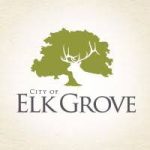Communities for a New California aims to change the face of political representation in the Central Valley
Of the 45 sitting supervisors on nine county boards spanning the San Joaquin Valley—from Sacramento to Kern—only 10 (22 %) are people of color, and four (9%) are women. By shocking contrast, 35 (77 percent) are white males. This is despite the fact that non-white people account for roughly 65 percent of the total population of these counties, based 2020 U.S. Census numbers.
In short, to say political representation in the Central Valley does not fairly reflect its populace is an understatement. One of the main objectives of Communities for a New California (CNC) is spurring valley voters to change this disparity.
At the county level it’s a battle against systemic barriers, according to CNC Executive Director Pablo Rodríguez. Elected positions like county supervisors, district attorney, and county sheriff are often decided during low-turnout primary elections. If a candidate receives a majority plus one of votes in the primary, there is no mandatory November general election to decide the winner. In addition there are political forces which seek to silence people of the global majority—people of color—says Rodríguez.
“Si no dices lo que piensas, ¿pa’ qué piensas?”
Pablo Rodríguez, Founding Executive Director, Communities for a New California
“As a result of bad experiences there are many people of color who become reluctant to voice their opinions publicly. People often feel safer that way, so we are clandestine at work—we don’t draw attention to ourselves, we don’t lose our jobs. So we remain clandestine in our neighborhoods and communities as a whole.”
To counter this, Rodriguez offers a Spanish phrase that’s something of a mantra for him—“Si no dices lo que piensas, ¿pa’ qué piensas?” (“If you don’t say what you think, why think?”). He explains that one of CNC’s main objectives is to “politicize social networks”—to get people talking about what is important to them with their family and friends, which in turn can move them to take action.
“If we’re talking, we’re fighting, and if we’re fighting, we’re winning,” he says.
One of CNC’s initiatives is the Lúcete Latina campaign, which spotlights inspirational Latinas advocating for critical issues—those who are “shining brightly.” The goal is to amplify underrepresented voices by showing the power of Latinas and women of color to affect positive change in their families, neighborhoods, and California as a whole. One of every six registered voters in California is a Latina woman.
“Those 3.2 million women hold the power to decide who represents us in Sacramento and Washington, D.C.,” says Rodríguez. “The candidates who authentically engage Latina voters and demonstrate a plan to address the issues negatively impacting the families and loved ones of Latina women will not only earn the votes of Latina women. But, also earn the votes of Latino voters as a whole.”
Rodríguez was a founding member of the Fresno County Civic Engagement Table, which grew into the MOVE The Valley coalition. Of the coalition, he says there is power in the unity between its member groups and the voters they represent.
“We share a common future. It’s about, Our voice, our choice, our California.”
For more information about Communities for a New California, go to www.cncedfund.org.





























